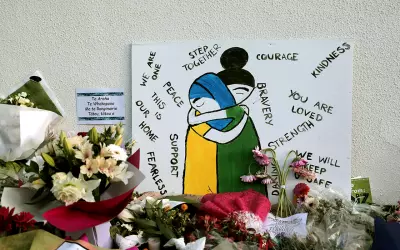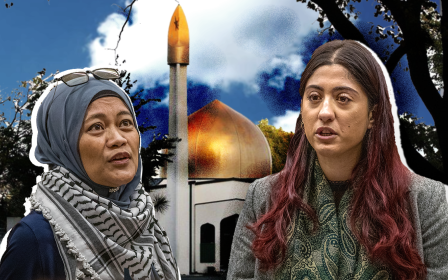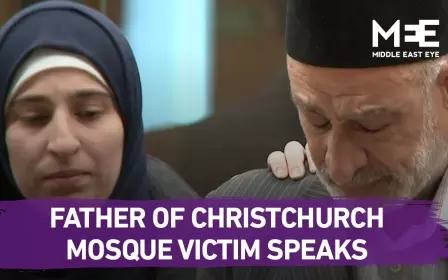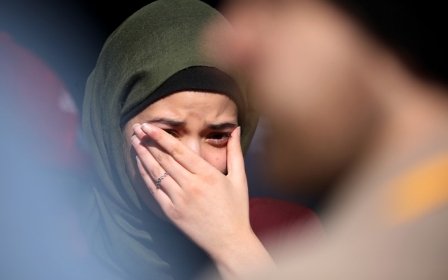Christchurch attack: Report finds New Zealand failed to protect Muslim communities
The long-anticipated report into the Christchurch mosque attacks has concluded that the New Zealand government and its intelligence agencies failed to protect Muslim communities.
The almost 800-page report released on Tuesday said that New Zealand's intelligence services disproportionately prioritised fighting Islamic extremism and failed to properly investigate the threat posed by white supremacists.
It added that the police failed to process the gunman's firearms license appropriately.
'While the commission made no findings that these issues would have stopped the attack, these were failings nonetheless and, for that, on behalf of the government I apologise,'
- New Zealand's Prime Minister Jacinda Arden
The attack, carried out on 15 March 2019 by white supremacist Brenton Tarrant, killed 51 Muslim worshippers at two mosques in the city of Christchurch in the deadliest shooting in the country's history.
Tarrant, a 29-year-old Australian, admitted to 51 charges of murder, 40 counts of attempted murder and one charge of committing a terrorist act during the shooting rampage at two Christchurch mosques which he livestreamed on Facebook.
New MEE newsletter: Jerusalem Dispatch
Sign up to get the latest insights and analysis on Israel-Palestine, alongside Turkey Unpacked and other MEE newsletters
Tarrant was sentenced to life in prison without parole in August for the crime. It was the first time a court in New Zealand had sentenced a person to prison for the rest of their life.
Local mosque leaders from Christchurch who spoke after the report's publication on Tuesday said it proved that the Muslim community was "unfairly targeted with hate speech" with the authorities failing to act on its fears.
"Before the terror attack, I had reported suspicious people around the Deans Avenue mosque but was disappointed by the lack of action taken by police," said Gamal Fouda, the imam of Masjid Al Noor.
The Muslim community also accepted the 44 recommendations listed to promote more safety and encourage social cohesion in the aftermath of the attack.
Key recommendations including reforming gun laws, recognising hate-crime offences, setting up an oversight group that includes members of the Muslim community, implementing a transparent and publicly facing counter-terror policy and establishing a new intelligence agency.
Attack was unavoidable
The Royal Commission of Inquiry report, however, noted that intelligence services would not have been able to avert the deadly attack.
"No single aspect of [information available to authorities] could have alerted public sector agencies to an impending terrorist attack," the report said.
It added that the signs for an imminent attack were "fragmentary" and difficult to use to establish action from the local authorities.
New Zealand's Prime Minister Jacinda Arden welcomed the findings of the report and apologised for the government's shortcomings.
"While the commission made no findings that these issues would have stopped the attack, these were failings nonetheless and, for that, on behalf of the government I apologise," Arden said after the report's publication.
"Ultimately, this roughly 800-page report can be distilled into one simple premise: Muslim New Zealanders should be safe. Anyone who calls New Zealand home, regardless of race, religion, sex or sexual orientation should be safe."
The report took 18 months to finish and contains interviews with hundreds of people including security agencies, Muslim community leaders, international experts and officials in England, Norway and Australia.
A condition set by the commission was to protect the anonymity of the interviewees would be sealed for 30 years to protect national security and confidentiality.
Middle East Eye delivers independent and unrivalled coverage and analysis of the Middle East, North Africa and beyond. To learn more about republishing this content and the associated fees, please fill out this form. More about MEE can be found here.





